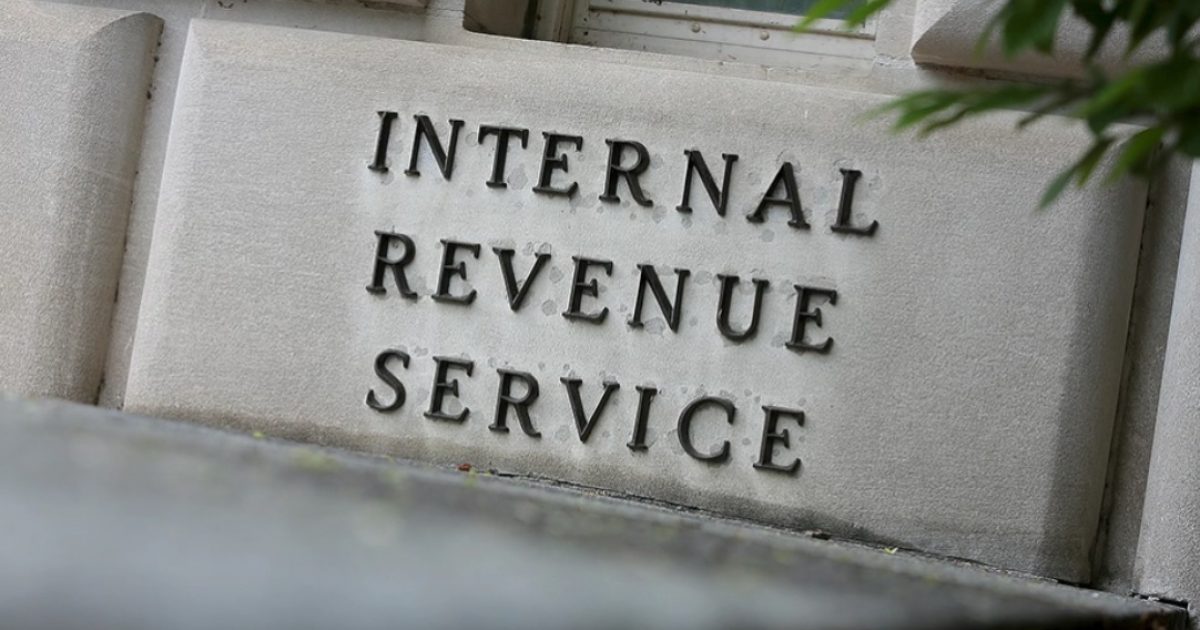Once things are restored all this will be meaningless, but for many, they have given the federal government an interest free, immoral loan over the past year and would like to get their money back. Yet, the Internal Revenue Service will not be processing income tax refunds during the government shutdown, and this could be a problem for many who are counting on that money.
The Wall Street Journal reports that the IRS will be happy to take your money during a government shutdown, but won’t be giving you your money back that they owe you.
A prolonged government shutdown would likely delay billions of dollars in income-tax refunds.
The Internal Revenue Service is one of the agencies that now lacks funding, and the U.S. tax collector has been operating with about 1 in 8 employees under the shutdown plan it uses outside the tax-filing season.
take our poll - story continues below[gravityforms id="56"]Completing this poll grants you access to DC Dirty Laundry updates free of charge. You may opt out at anytime. You also agree to this site's Privacy Policy and Terms of Use.During a shutdown, the IRS can continue activities that protect government property, and the agency may bring in more workers soon to prepare for the income-tax filing season. Even during a shutdown, the agency still processes some tax returns that include payments, keeps computer systems running and continues criminal investigations. But the IRS generally doesn’t conduct audits, respond to taxpayer questions outside the filing season or—brace yourself—pay refunds.
A shutdown that gets resolved within a few weeks would have little ultimate effect on taxpayers, but lawmakers have made little or no movement toward a deal. That stalemate raises the prospect of an unprecedented extended closure during the individual income-tax filing season, which typically starts in mid-to-late January. The IRS hasn’t announced a start date yet for the 2019 filing season, the first under the tax law that Congress passed in 2017.
“We’re in uncharted territory as each day gets longer,” said Mark Steber, chief tax officer at Jackson Hewitt Tax Service Inc.
If the shutdown drags on, early filers won’t receive the refunds they’re expecting, a gap that could put pressure on congressional negotiators and President Trump to reach a deal.
Notice that: The IRS will protect its own interests, not the interests of the people it is supposed to serve… that’s because it was invented to serve government, not the people.
And to show you just how serious they are about protecting their own interests, they wrote a 110-page contingency plan due to lapsed appropriations for Fiscal Year 2019.
WSJ went on to point out just how much money were are talking about in refunds by the first part of February that might not be refunded by pointing to numbers from 2018.
By Feb. 2, 2018, the IRS had paid $12.6 billion in refunds to more than six million households. By Feb. 16, the IRS had paid $101.2 billion to nearly 32 million households. And by March 30, the IRS had paid $212 billion to 73 million households.
For many Americans, the tax refund is the single largest financial event of the year, and the people who tend to file early in the season are taxpayers who count on large refunds to pay down debt, catch up on bills or make major purchases. Those are disproportionately low-income households that benefit from the earned-income tax credit and other provisions that give them no income-tax liability or a net benefit from the income-tax system.
This isn’t just an impact on those seeking refunds, but it impacts the economy too, as many of the taxpayers are counting on that money to spend on retail items, and retailers are counting on them to spend that money.
Don’t worry, no one will be able to assist you or answer your questions either as they hold onto your money as the IRS will not be responding during the shutdown.
Additionally, there will be new changes in the tax law that have to be addressed, which will make for more work for IRS employees.
“You worry about the filing season because of the tax-law changes anyway. So there’s no way that a shutdown is helpful,” said former acting IRS commissioner Steven Miller. “The risk was already high as to whether the service could already get done what the service needed to get done with the paltry resources they already have.”
I say it’s time to abolish the IRS and go back to the way we used to fund the Federal government before income taxes and the Internal Revenue Service. This would come through tariffs on imported goods. Of course, this would require the elimination of the welfare state, including Social Security, Medicare and Medicaid from top to bottom and a huge pull back on the military, and unconstitutional spending. However, the results long-term would be that people wouldn’t be giving the government an immoral, interest-free loan that the government will pay back only when it is good and ready to pay and it would drop deficit spending and begin lowering debt. But politicans don’t really want that, they just like to talk about it to politicize the populace.
Courtesy of Freedom Outpost
Tim Brown is an author and Editor at FreedomOutpost.com, SonsOfLibertyMedia.com, GunsInTheNews.com and TheWashingtonStandard.com. He is husband to his “more precious than rubies” wife, father of 10 “mighty arrows”, jack of all trades, Christian and lover of liberty. He resides in the U.S. occupied Great State of South Carolina. . Follow Tim on Twitter. Also check him out on Gab, Minds, MeWe, Spreely, Mumbl It and Steemit

Your Daily Briefing:
Fight Online Censorship!
Get the news Google and Facebook don't want you to see: Sign up for DC Dirty Laundry's daily briefing and do your own thinking!

